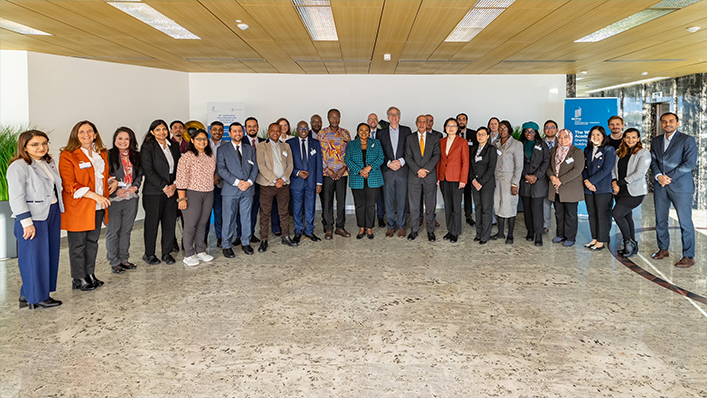
The colloquium aimed to increase universities’ ability to establish national expertise in intellectual property and, as a result, increase their capacity to offer policy support on ongoing WIPO and WTO discussions. It also provided teachers and researchers in intellectual property and related disciplines with an update on WIPO and the WTO’s activities and instruments.
The programme included a wide range of IP policy and legal issues, including public health, economic and social development, biotechnology, traditional knowledge, technology transfer and enforcement. More than 30 experts from WIPO, the WTO, other intergovernmental organizations, non-governmental organizations, delegations and industries were invited to speak and to have an interactive discussion with the participants.
Speaking at the opening, Hasan Kleib, Deputy Director General of WIPO, highlighted the rapid pace of change in IP and emphasized the key role of educators in the future of the IP system.
“It is our hope that one outcome of this programme will be to urge you as teachers of IP to encourage your students to undertake timely, viable and impactful research that will shape a better and brighter future for all,” he said. He further highlighted that there is an increased importance of IP in the contemporary world and the role of IP in addressing contemporary challenges.
At the closing ceremony, WTO Deputy Director-General Anabel González said the issues addressed in the colloquium are crucial to tackle global challenges, including the responses to the pandemic, global food security and climate change, and their social and economic impact.
She stressed that a diverse and active network of highly engaged IP teachers and researchers across the world can make great contributions to the development of balanced IP systems in many ways “through academic teaching and publications, active participation in national and international policy debates and international negotiations and their contribution to WTO and WIPO capacity building.”
During the colloquium, participants got the opportunity to present their academic research papers on current policies and legal issues, which will be published in the WIPO-WTO Colloquium Publication.
The programme has produced more than 400 alumni since the first Colloquium in 2004.
A copy of the programme for the colloquium is available here.
Share
Reach us to explore global export and import deals